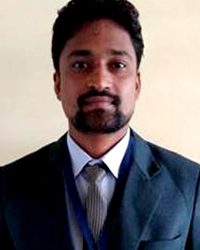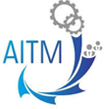Electrical & Electronics Engineering Program was introduced at Angadi Institute of Technology and Management in the academic year 2009 – 10, with a sanctioned intake of 30 students. The demand for electrical engineers in industries, state electricity boards and private sectors engaged in electricity generation is more than the engineers available. Because of periodical revisions in the syllabi and introduction of electronics related subjects, electrical engineers get acquainted with latest developments in the electrical and electronics engineering field and can handle present solid state electronic devices. The department has excellent industry institute interaction and provides services like consultancy, design and testing to the industries. Since the commencement of the program, the department has made sincere efforts in the development of students through training and industrial visits. Four batches of electrical engineering are passed out from the college. Apart from the curriculum, students from electrical engineering department have won prizes in co-curricular and extracurricular activities. Also the department has formed student association (AEEES) to promote the students talent and their upliftment. The department enjoys the mixture of experienced and fresh faculty members. One staff member is completed his Ph.D.
Vision of the Department
To illuminate the world by empowering our students with domain knowledge and relevant skills to be globally competent.
Mission of the Department
M1:Create an environment that imparts knowledge in Electrical & Electronics Engineering through effective pedagogical approaches.
M2:Inculcate both curriculum-based and beyond-curriculum practical skills, problem-solving abilities and innovative thinking.
M3:Instil professional practices, ethical values, teamwork and leadership skills to contribute effectively to the global engineering community.
HOD's Message
The Department of Electrical & Electronics Engineering was established in the year 2009 and offers four-year degree course leading to Bachelor degree in Electrical & Electronics Engineering affiliated to Visveswaraya Technological University, Belgaum. The Department aims at producing well qualified Engineers for the nation and also across the globe. The Department has eminent faculty with wide range of experience in research, teaching, training and field experience which will help the students to gain practical knowledge which is very essential for their future endeavours. The department has excellent industry institute interaction and provides services like consultancy, design and testing to the industries. Since the commencement of the program, the department has made sincere efforts in the development of students through training and industrial visits. Also, the Department has formed Student Association (AEEES) to promote the student’s talent and department library for student reference.

Prof. Raviraj Chougala
HoD EEE
Program Educational Objectives (PEOs)
PEO 1: Apply the fundamentals of Mathematics, Science and Electrical Engineering concepts to analyse, formulate, and solve complex engineering problems in industries, research and academia.
PEO 2: Demonstrate the ability to analyze and understand the design needs of Electrical and Electronic systems, using hardware, software, and embedded technologies to develop practical and efficient engineering solutions.
PEO 3: Adapt to emerging technologies and collaborate effectively in multidisciplinary teams, enhancing communication skills and leadership abilities to tackle complex engineering challenges.
PEO 4: Encourage a successful professional career by adopting ethical work values and addressing societal needs.
PEO 5: Nurture lifelong learning and adaptability in engineering practices to meet the dynamic requirements of Indian and multinational industries, and to evolve as competent global professionals.
Program Outcomes (POs)
Engineering Knowledge : Apply the knowledge of mathematics, science, engineering fundamentals, and an engineering specialization to the solution of complex engineering problems.
Problem analysis : Identify, formulate, research literature, and analyze complex engineering problems reaching substantiated conclusions using first principles of mathematics, natural sciences, and engineering sciences.
Design/development of solutions : Design solutions for complex engineering problems and design system components or processes that meet the specified needs with appropriate consideration for the public health and safety and the cultural, societal, and environmental considerations.
Conduct investigations of complex problems : Use research-based knowledge and research methods including design of experiments, analysis and interpretation of data, and synthesis of the information to provide valid conclusions.
Modern Tool Usage : Create, select, and apply appropriate techniques, resources, and modern engineering and IT tools including prediction and modelling to complex engineering activities with an understanding of the limitations.
The Engineer and Society : Apply reasoning informed by the contextual knowledge to assess societal, health, safety, legal, and cultural issues and the consequent responsibilities relevant to the professional engineering practice.
Environment and Sustainability : Understand the impact of the professional engineering solutions in societal and environmental contexts, and demonstrate the knowledge of need for sustainable development
Ethics : Apply ethical principles and commit to professional ethics and responsibilities and norms of the engineering practice.
Individual and team Work : Function effectively as an individual, and as a member or leader in diverse teams, and in multidisciplinary settings.
Communication : Communicate effectively on complex engineering activities with the engineering community and with society at large. Some of them are, being able to comprehend and write effective reports and design documentation, make effective presentations, and give and receive clear instructions.
Project Management and Finance : Demonstrate knowledge and understanding of the engineering and management principles and apply these to one’s own work, as a member and leader in a team, to manage projects and in multidisciplinary environments.
Lifelong learning : Recognize the need for, and have the preparation and ability to engage in independent and lifelong learning in the broadest context of technological change.
Program Specific Outcomes (PSOs)
PSO 1: To apply the principles of core Electrical and Electronics Engineering subjects such as Electrical Machines, Power Systems, Control Systems, and Power Electronics to analyze, design, and maintain efficient and reliable electrical systems.
PSO 2: To blend knowledge of interdisciplinary and multidisciplinary domains, such as Electronics Engineering and Mechanical Engineering, with core domain for developing innovative and sustainable engineering solutions.
PSO 3: To demonstrate ethical and professional behavior, effective communication, teamwork, and a commitment to lifelong learning and sustainable development while addressing societal and environmental challenges through engineering practices.



